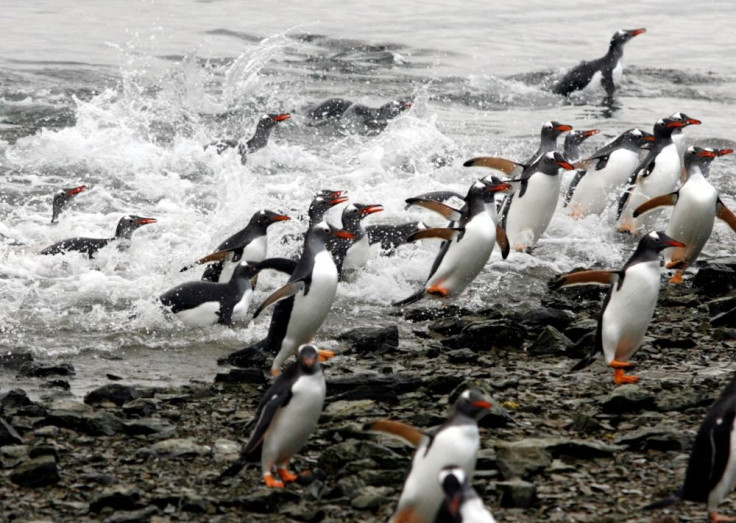Penguins Use Poop To Melt Icy Grounds, Make Spot For Nesting [WATCH VIDEO]

A new video footage suggests that penguins use their own poop to melt ice and make nesting ground. The new video revealed was a one-year study performed by scientists from England’s University of Oxford and the Australian Antarctic Division.
The video shows a colony of Gentoo penguins piling up on the snowy grounds of the Antarctic. Once the penguins arrived for breeding, they gathered on the snow and covered the area with something that appeared like mud -- their poop.
The time-lapse video footage captured a year’s worth of recording showing how penguins melted the ice with their poop, or guano, and turned the grounds into a more suitable place for breeding. Looking at the footage, researchers believe that the guano can harvest enough heat despite the weak sunlight in the region, according to The Verge. The video also shows how these birds interact with each other in the Antarctic during the breeding season.
“This is something we’re testing at the moment,” said University of Oxford penguinologist, Dr. Tom Hart, in a report by The Verge. Hart also said that it is possible that the melting of the snow was caused by mechanical erosion caused by penguins walking around.
The footage was part of a project called Penguin Watch launched in 2014. The University of Oxford on their April press release asked the public to participate by going online and counting the penguins captured in the footage.The discovery should provide a new insight as to how Gentoo penguins behave during breeding season despite the harsh climate in the area.
The results of the video should also help scientists know what the penguins are up to during winter, understand how climate change and human activities have an effect on the species’ breeding and feeding behaviour and why some penguin species decline while others survive.
Source: YouTube/Oxford Science Blog
To report problems or leave feedback on this article, email: wendylemeric@gmail.com.




















